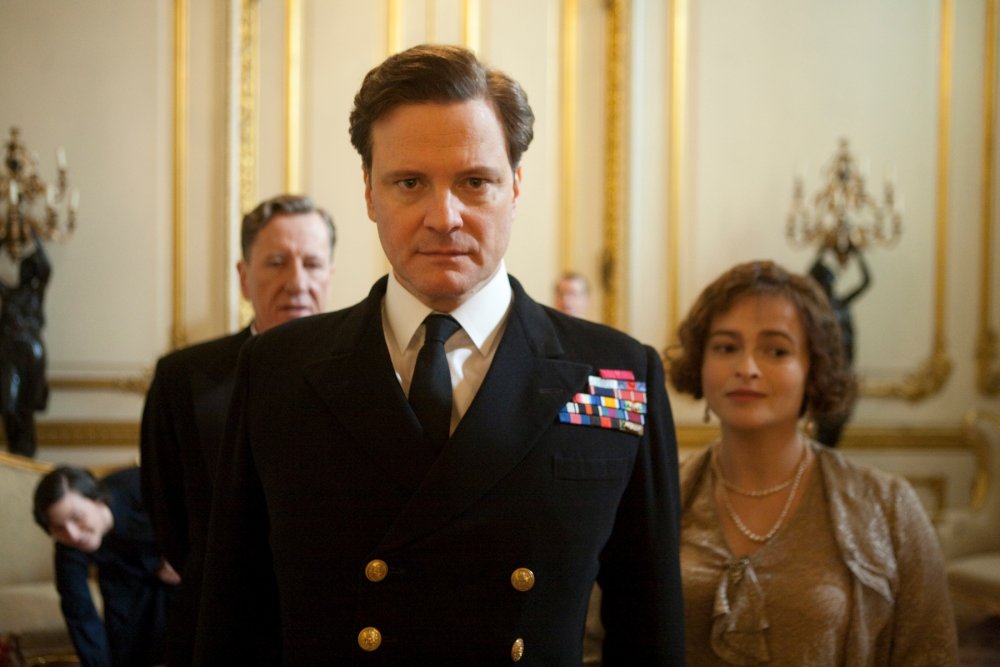
The King's Speech (2010)
Now in its tenth year, the Yearbook provides a valuable evidence base for industry and policy-makers. The full report, 2012 Statistical Yearbook, can be found here.
The Yearbook shows UK films and talent excelled on the world stage in 2011, winning awards and acclaim and taking $5.6 billion at the global box office (a 17% market share), while at home film production generated record levels of inward investment for the UK economy, and British audiences embraced cinema-going and film-watching across a variety of platforms.
Amanda Nevill, Chief Executive of the BFI, comments: “UK film is punching above its weight on the world stage, with British stories and talent captivating global audiences, the British public embracing film-watching in increasing numbers, and British independent films enjoying unprecedented levels of success. The Yearbook gives us the complete picture of UK film at home and internationally, and provides compelling evidence of UK film’s increasing importance to our economy, with a direct contribution of £3.3 billion to UK GDP and a healthy trade surplus of over £1.5 billion. But while 2011 was undoubtedly a fantastic year, we are far from complacent; it’s still a tough economic climate in which to raise finance for film production, and digital technologies continue to bring both challenges and opportunities for industry. We are committed to increasing Lottery funding for UK film in the round over the next five years, and we are working closely and collaboratively with our partners and stakeholders to deliver robust support for UK film right across the value chain, to ensure we maintain momentum and UK film continues to go from strength to strength.”
Ed Vaizey, Minister for Culture, Communications & the Creative Industries, comments: “The UK is home to some of the most talented and creative people in the global film industry, as demonstrated by the 30 major film awards that we won last year. With a record £1.27 billion spent on UK-based film productions last year, this dynamic industry continues to create jobs and attract significant overseas investment and the Government is committed to ensuring this sector continues to flourish and thrive.”
Cinema-going and film-watching
The BFI’s statistics confirm Britain as a nation of film-lovers. With less than 1% of the world’s population, the UK is nevertheless the third largest consumer of film by value in the world. The 558 films released in the UK during 2011 sold over 172 million cinema tickets, a 1.4% increase on 2010, driving box office revenues up 5% on the previous year to break the £1 billion barrier for the first time (UK excluding Republic of Ireland). 2011’s total box office of £1.04 billion represents an extraordinary 61% increase over the last decade, up from £645 million in 2001.
UK cinema-goers embraced home-made product during the year, with UK films taking the top three places at the box office in 2011 and independent British films claiming a 13% share of the total UK box office –the highest on record. The highest grossing film of the year was Harry Potter and the Deathly Hallows: Part 2 – a UK-made film backed by US studio Warner Bros – which earned £73 million in the UK and over £1.3 billion worldwide, becoming the third highest grossing film of all time in the UK. In second and third place at the UK box office came the independently made British films The King’s Speech, which took £46 million, and The Inbetweeners Movie on £45 million. Comedy is consistently the UK’s favourite genre and 2011 was no exception; comedy films earned £254 million at the UK box office – 22% of the year’s total takings.
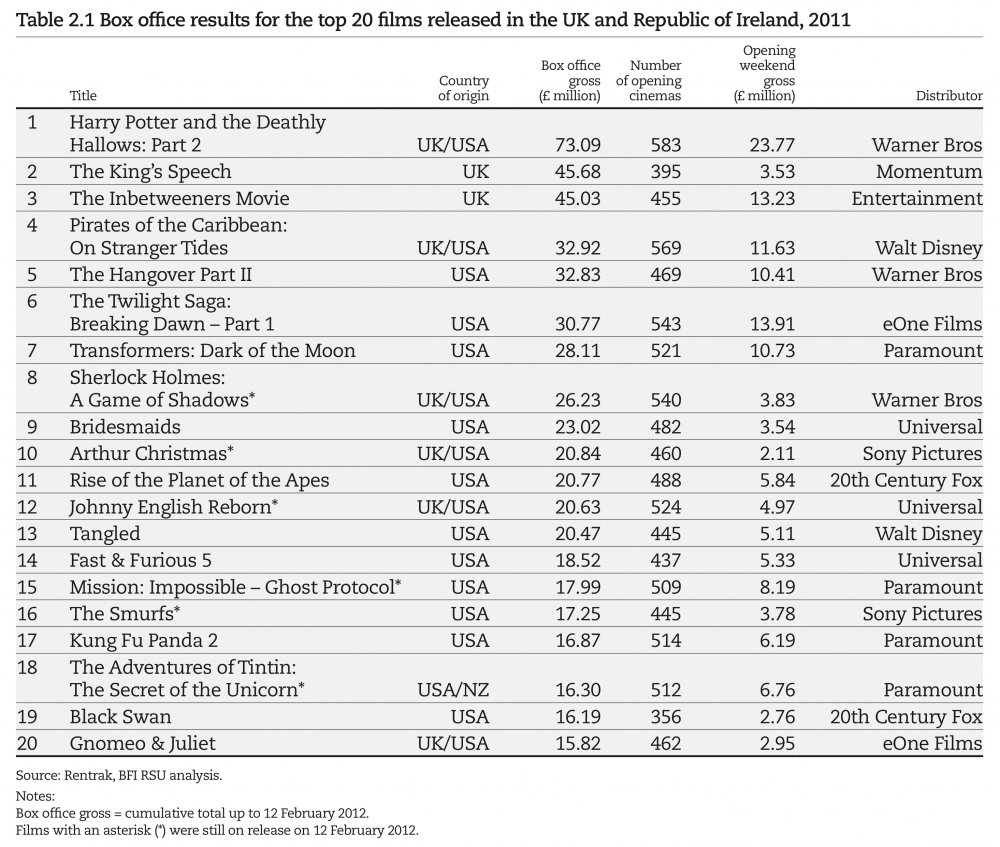
The Yearbook reveals some changes to the pattern of cinema-going in the UK, with 42% of cinema-goers choosing to watch films on weekdays (Monday – Thursday) – the highest on record. Weekends (Friday to Sunday) accounted for 58% of the total UK box office, the lowest percentage for the last eight years. Films which appeal to older audiences typically draw good weekday admissions and some of the top films of the year, including The King’s Speech, had significant appeal for older audiences (over 55s made up 45% of the film’s total cinema audience) which helping to drive up weekday admissions. Additionally, the ‘Orange Wednesdays’ promotion continued to have an impact in 2011 with 14% of box office being taken on Wednesdays – the highest percentage for eight years.
Film on TV
As befits a nation of film-lovers, in 2011 the British public clocked up an average of 87 film viewings per person. And while UK cinemas enjoyed healthy admissions, television accounted for 77% of all film viewings. The year saw 5,570 unique film titles available across UK television, resulting in a total of 3.9 billion viewings of feature films across all television formats (except pay-per-view) – over 22 times the number of cinema admissions.
3D
The year saw signs that UK cinema-goers are becoming more selective in their choice of 3D films, choosing the format for films where it makes a real contribution to their experience – as seen in the UK-produced motorcycle racing documentary TT3D: Closer to the Edge, which took over £1.2 million and became the second highest grossing documentary at the UK box office in 2011 – but sticking to 2D where they don’t perceive an added value. The number of 3D films released in 2011 was 47, up from 28 in 2010, but 3D takings were to 20% of UK and Republic of Ireland box office revenues, down from 24% in 2010.
Home entertainment
There were 152 million sales of films on physical video formats such as DVDs and Blu-ray in 2011, down 5.0% on 2010’s 160 million. The top three best selling films on physical formats were Harry Potter and the Deathly Hallows: Part 2 in first place, while Harry Potter and the Deathly Hallows: Part 1 came in second and third was The Inbetweeners Movie. The market value of film on physical video sales in 2011 was £1,165 million, down 8% from 2010’s £1,267 million.
The fall in DVD revenues has not yet been fully replaced by uplift in the use of Video on Demand (VoD) services, but audience use of VoD is rising steadily. VoD services in the UK are divided into television-based VoD and online VoD. Around 15 million households were able to access television-based VoD films in 2011, with the market increasing 6.5% from an estimated £107 million in 2010 to £114 million in 2011. Despite overall broadband penetration of 76% (fixed and mobile) and increasing broadband speeds, the online VoD market remained relatively small in 2011, with estimated revenues of around £52 million. However, this represents a 32% increase on revenues in 2010 and a 735% increase on 2008. The combined value of television and online VoD in 2011 is estimated at £166 million, up from £146 million in 2010 (Screen Digest) – an increase of 13%. This represents 4% of total UK filmed entertainment market, a reflection of the relative immaturity of the VoD market, which is still in its infancy.
Film production
There were 274 feature films produced wholly or partly in the UK, down from 343 in 2010. However, the total spend of UK-based film productions reached £1.27 billion in 2011, a new record for the British film industry.
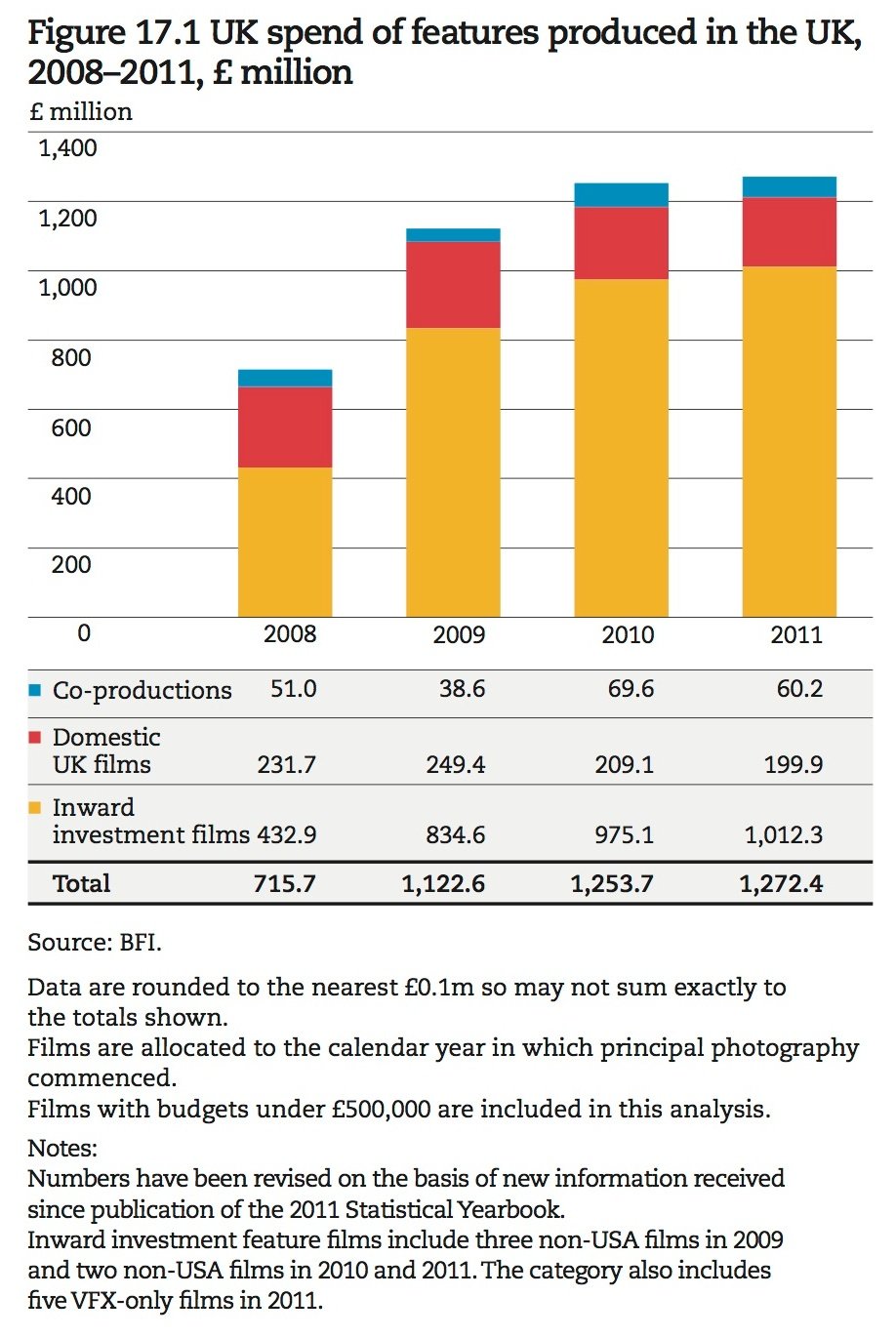
Films of different genres and budget levels including 360, Great Expectations, Now Is Good, Shadow Dancer, Skyfall, Snow White and the Huntsman, Streetdance 2 3D, The Sweeney, Welcome to the Punch, and World War Z increased film production spend in the UK on 2010’s £1.25bn.
International investment from films made in the UK using facilities, services and crew, in turn creating jobs and driving growth in both the UK film industry’s infrastructure and the economy as a whole, helped drive overall production spend. In 2011 these international productions spent just over £1 billion in the UK, the highest ever recorded and a 4% increase on 2010’s £979.7m. International film productions shooting in the UK included Christopher Nolan’s The Dark Knight Rises, Ridley Scott’s Prometheus and Jonathan Liebesman’s Wrath of the Titans.
There were 200 were domestic UK films produced during 2011, including Mike Newell’s Great Expectations, Joe Wright’s Anna Karenina, Ol Parker’s Now Is Good and Phyllida Lloyd’s The Iron Lady. This is a decrease from the 282 domestic feature films produced in 2010, with the UK spend from domestic productions worth £200 million in 2011, down from £209 million in 2010. Of the 200 domestic UK films produced during the year, 124 (62%) were made on budgets under £500,000. Such films are often important stepping stones in the career development of new film talent. The number of UK co-productions rose 31% from 32 in 2010 to 42 in 2011.
UK film economy
In 2010 the UK film industry had a total turnover of £7.2 billion, making it in real terms nearly two and a half times its size in 1995. The UK film industry’s direct contribution to UK Gross Domestic Product (GDP) was £3.3 billion.
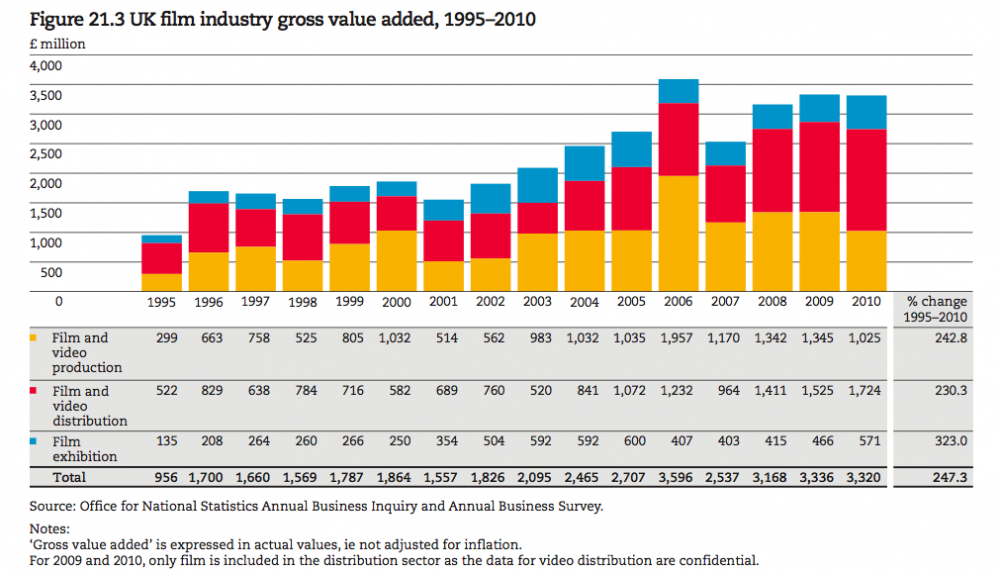
UK film industry exports were 201% higher than in 2001, exporting £2.1 billion worth of services in 2010, and boasting a healthy trade surplus of over £1.5 billion.
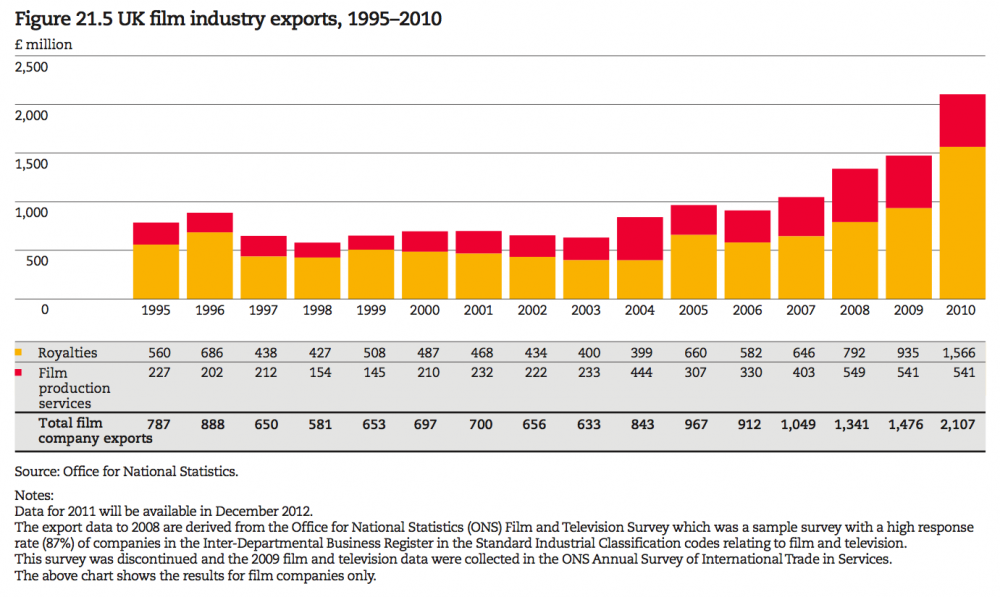
The film industry continues to be an important UK employer, in 2011 employing a total of 62,000 people, up from 48,000 in 2010, with 39,000 working in film and video production (up from just over 30,000 in 2010).
UK film internationally
The UK’s reputation as a home to world-class creative talent is furthered by the phenomenal global performance of UK films and talent in 2011. In a strong year for the global box office – in which the total box office reached $32.6 billion, marking a 65% increase since 2002 – UK films earned $5.6 billion, a 17% share, up from $4.5 billion and a 14% share in 2010. UK films and talent in front of and behind the camera won 30 major film awards in 2011, helping to raise the critical reputation and international profile of British film still further. These included eight Oscars® — including Best Picture (Iain Canning, Gareth Unwin, Emile Sherman), Best Director (Tom Hooper), Actor in a Leading Role (Colin Firth) and Original Screenplay (David Seidler) for The King’s Speech – and 15 BAFTAs, alongside competitive prizes from key international film festivals such as Sundance, which in 2011 saw UK films and talent win six awards.
The Yearbook shows that of the 20 top performing films of all time at the UK box office, 12 are UK/USA collaborations (mostly from franchises, including the Harry Potter series, Bond, and Batman) and 14 of the 20, including the Harry Potter series, Lord of the Rings, Bond, Mamma Mia and The Full Monty, are based on stories and characters created by UK writers – showing the appetite for home-grown subjects and settings amongst British audiences.
Half of the top 20 global box office successes of the last 11 years are based on novels by UK writers, including Harry Potter, The Lord of the Rings and Alice in Wonderland. More than half of the top earning 200 films released worldwide since 2001 have featured UK actors in lead or prominent supporting roles. UK directors were behind 24 of the 200 biggest films of the last 11 years with David Yates (Harry Potter) topping the box office league.
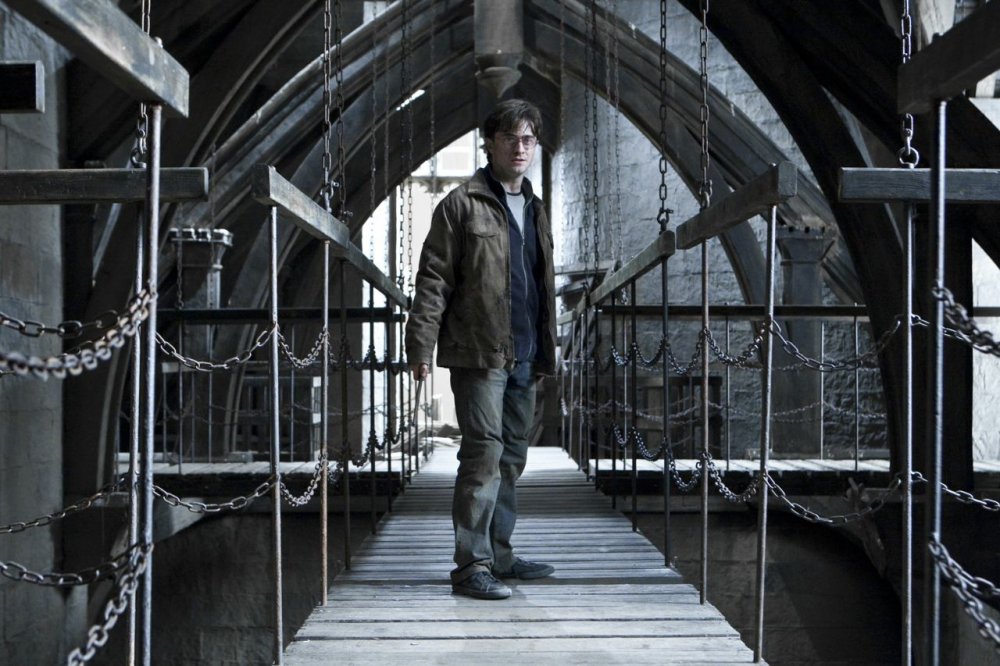
A decade of Harry Potter
A theme that emerges throughout the Yearbook is the astonishing success of the Harry Potter series, which saw the release of its final instalment in 2011, ten years after the first film was released in 2001. The BFI’s Research and Statistics Unit today provides the first analysis of a decade of Potter. Based on British source material and shot in the UK with a British producer, cast and crew, the franchise has to date grossed £442 million at the UK box office, $7.7 billion at the worldwide box office, sold over 30 million copies on all video formats in the UK and has been watched over 212 million times on UK television.
But the ‘Harry Potter effect’ is set to leave positive impacts and an indelible legacy on the UK reaching far beyond the box office. Long tail benefits have been assured in a number of ways: Warner Bros has secured the future of Leavesden as a permanent studio facility and boosted the UK’s tourism offer with a Harry Potter experience, and the series has been a contributor in the skills development of the UK production skillsbase, including the emergence of the UK’s visual effects sector as a world class hub, with the films themselves continuing to act as the sector’s best advertisement.




